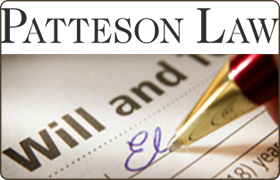ADEMPTION
The failure of a bequest of property in a will. The gift fails (is 'adeemed') because the person who made the will no longer owns the property when he or she di...
(more...)The failure of a bequest of property in a will. The gift fails (is 'adeemed') because the person who made the will no longer owns the property when he or she dies. Often this happens because the property has been sold, destroyed or given away to someone other than the beneficiary named in the will. A bequest may also be adeemed when the will maker, while still living, gives the property to the intended beneficiary (called 'ademption by satisfaction'). When a bequest is adeemed, the beneficiary named in the will is out of luck; he or she doesn't get cash or a different item of property to replace the one that was described in the will. For example, Mark writes in his will, 'I leave to Rob the family vehicle,' but then trades in his car in for a jet ski. When Mark dies, Rob will receive nothing. Frustrated beneficiaries may challenge an ademption in court, especially if the property was not clearly identified in the first place.
 x
x

 Richard Patteson Tyler, TX
Richard Patteson Tyler, TX AboutPatteson Law
AboutPatteson Law Practice AreasSpecializations
Practice AreasSpecializations
